International Conflict & International Organizations
The analysis of actors and actions on the international stage, from international organizations to armed conflicts.
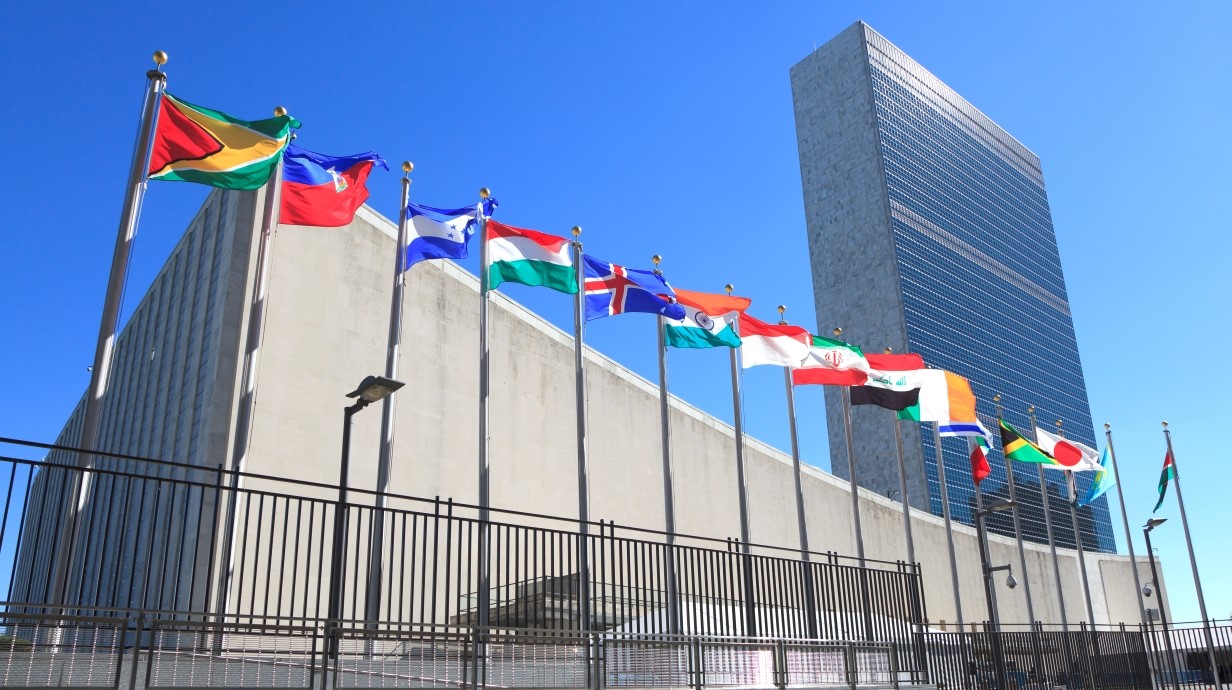
Distinguished Faculty Experts in the International Relations Subfield
Our distinguished faculty in International Relations bring a wealth of expertise to topics related to international conflict and organizations.
- Our faculty specialize in critical areas such as economic sanctions, political violence, international financial institutions, and peacekeeping efforts.
- Their diverse research interests contribute to a deeper understanding of the dynamics that shape global relations.
Explore their academic backgrounds and research to learn more about how they continually influence the field of international relations.
Faculty Members Who Specialize in International Conflict and International Organizations | ||
|---|---|---|
| Faculty Member | Ph.D. Degree | Research Interests |
| Susan Allen | Emory University | International Organizations; Economic Sanctions; Consequences of Military Coercion |
| Lauren Ferry | Univ. of California-San Diego | Sovereign Debt; International Financial Institutions; Foreign Aid; International Organizations |
| Ben Jones | Ohio State University | Civil War Termination and Recurrence; Third-Party Interventions in Civil War; Conflict Dynamics; Political Methodology |
| Tim Nordstrom | Pennsylvania State University | International Conflict; International Organizations; Regime Change; Political Methodology |
Research & Awards
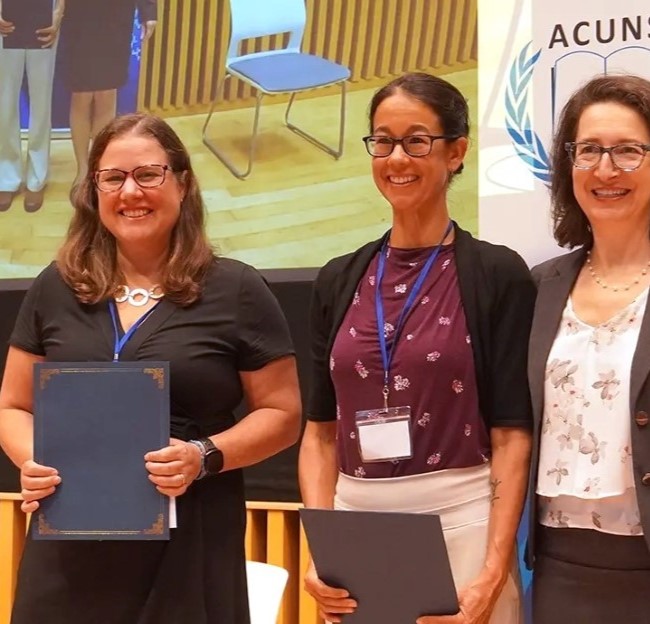
Award from the United Nations
The United Nations presented Dr. Susan Allen (far left in photo) with the 2024 Book Award for her insights into how the UN Security Council makes decisions. Her co-authored book, Bargaining in the UN Security Council: Setting the Global Agenda, was published by Oxford University Press in 2022 and examined the formal and informal factors that influence Security Council priorities and responses to international peace and security threats. Their book became highly recommended reading around the UN leadership and they were brought by the South Korean mission to the UN to consult with member representatives.

Public Relations in Civil Conflict
Dr. Ben Jones explores the use of public diplomacy abroad by combatants in civil wars. He asks whether and under what circumstances, rebels and governments involved in ongoing civil wars will divert resources away from the battlefield, and instead toward influencing foreign public opinion about the ongoing war and the sides fighting. Moreover, this research project has demonstrated that such public diplomacy efforts can have meaningful results, at times increasing the cooperation between rebels and foreign allies, as well as improving the sentiment with which US government officials discuss governments that engage in public diplomacy during civil wars.
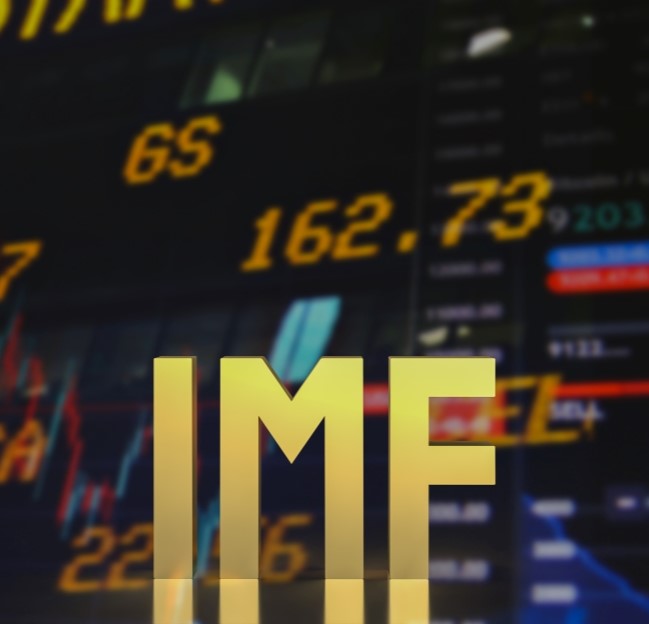
Negotiating with the IMF
Dr. Lauren Ferry created an original dataset on the timing and intensity of negotiations between borrowing countries and the International Monetary Fund (IMF) for loans during economic crises. One article showed that borrowers can obtain speedier negotiations with fewer compromising conditions on the basis of their ties to major IMF shareholder states. Her second article, the subject of a SoundCloud podcast. discussed how the debt negotiation processes for distressed countries with the IMF has changed in the wake of China’s emergence as a major lender.
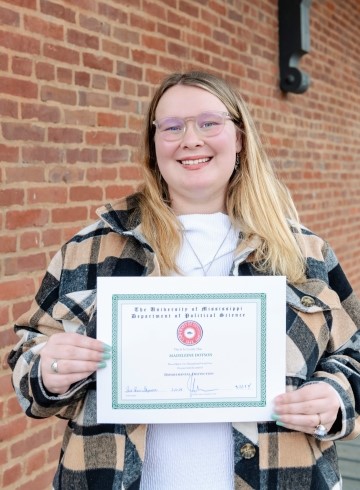
Undergraduate Research Opportunities
A recipient of the Department Distinction Award, Madeleine Dotson (B.A. in Arabic, Economics, and Political Science with an emphasis in International Conflict and Cooperation '24) received a national Truman Scholarship for aspiring public service leaders. She published research on Russian tactics in Bosnia and Herzegovina in the UM undergraduate journal, Ventures. Her Honors thesis investigated the role of dams in bargaining and analyzed the current conflict between Egypt and Ethiopia over the Grand Ethiopian Renaissance Dam (GERD). She also participated in an Arabic translation internship with the Commission for International Justice and Accountability, which gathers evidence used to prosecute terrorists.
Madeleine Dotson
(B.A. in Arabic, Economics, and Political Science '24)
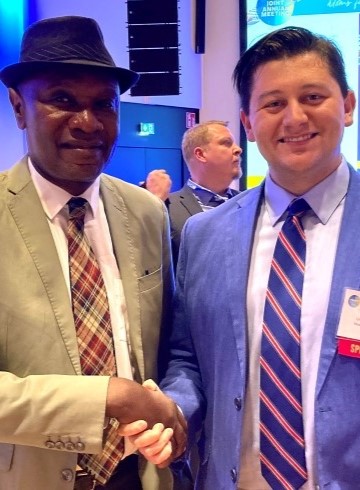
Undergraduates Presenting at International Conferences
Lake Dodson (B.A. in Political Science with minors in East Asian studies and Global Security Studies '24) studied abroad in S. Korea where he learned about Korean foreign policy, North-South Korean relations, and nuclear energy. He was also a speaker at the Atoms for Peace conference in Vienna, Austria, a meeting of the Institute of Nuclear Materials Management and the European Safeguards Research and Development Association. He presented on thorium's potential to provide energy and lessen the threat of nuclear conflict. Lake (right in photo) met Mr. Enobot Agboraw, Executive Secretary of the African Commission on Nuclear Weapons.
Lake Dodson
(B.A. in Political Science with minors in East Asian studies and Global Security Studies '24)
